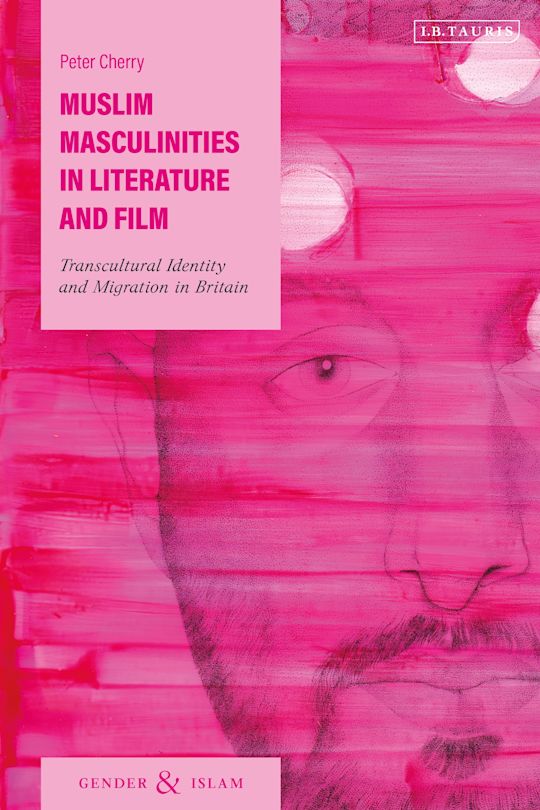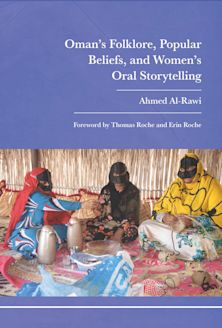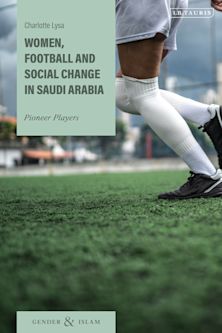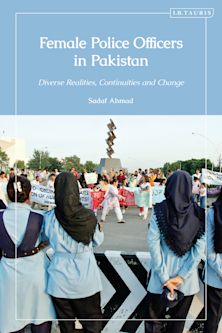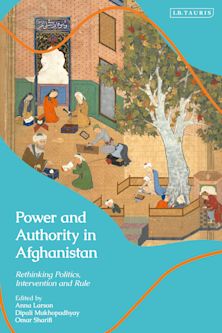- Home
- ACADEMIC
- Middle East
- Gender and the Middle East
- Muslim Masculinities in Literature and Film
Muslim Masculinities in Literature and Film
Transcultural Identity and Migration in Britain
Muslim Masculinities in Literature and Film
Transcultural Identity and Migration in Britain
You must sign in to add this item to your wishlist. Please sign in or create an account
Description
A climate of Islamophobia allows anxieties about Muslim men living in and migrating to Britain to endure. British Muslims men are often profiled in highly negative terms or regarded with suspicion owing to their perceived religious and cultural heritage. But novels and films by British migrant and diaspora writers and filmmakers powerfully contest these stereotypes, and explore the rich diversity of Muslim masculinities in Britain.
This book is the first critical study to engage with British Muslim masculinities in this literary and cinematic output from the perspective of masculinity studies. Through close analysis of work by Monica Ali, Nadeem Aslam, Guy Gunaratne, Sally El Hosaini, Hanif Kureishi, Suhayl Saadi, Kamila Shamsie, Zadie Smith, Zia Haider Rahman and Salman Rushdie, Peter Cherry examines how migrant and diaspora protagonists negotiate their masculinity in a climate of Islamophobic and anti-migrant rhetoric. Cherry proposes a transcultural reading of these novels and films that exposes how conceptions of 'Britishness', 'Muslimness' and those of masculinity are unstable and contingent constructs shaped by migration, interaction with other cultures, and global and local politics.
Table of Contents
Introduction: Writing British Muslim Masculinities
Part I: Writing British Muslim Masculinities Befioe and After The Satanic Verses Affair
1. Muslim Masculinities on the Move: Salman Rushdie's The Satanic Verses (1988)
2. Sacred and Secular Masculinities: Hanif Kureishi's The Black Album (1995) and Zadie Smith's White Teeth (2000)
3. Between Men, Desiring Men: Hanif Kureishi's My Beautiful Laundrette (dir. Stephen Frears, 1985) and Sally El Hosaini's My Brother the Devil (dir. Sally El Hosaini, 2012)
Part II: Writing British Muslim Masculinities after 9/11
4. British Muslim Masculinities in the Metropolis: Monica Ali's Brick Lane (2004) and Suhayl Saadi's Psychoraag (2004)
5. Mapping British Muslim Masculinities: Nadeem Aslam's Maps for Lost Lovers (2004) and Zia Haider Rahman's In the Light of What We Know (2014)
6. Fathers, Sons, Brothers: Kamila Shamsie's Home Fire (2017) and Guy Gunaratne's In Our Mad and Furious City (2018)
Conclusion: Untranslated Men?
Bibliography
Product details
| Published | 23 Sep 2021 |
|---|---|
| Format | Ebook (PDF) |
| Edition | 1st |
| Extent | 272 |
| ISBN | 9780755601721 |
| Imprint | I.B. Tauris |
| Series | Gender and Islam |
| Publisher | Bloomsbury Publishing |
About the contributors
Reviews
-
[Cherry's] work makes an excellent contribution to Muslim cultural studies and masculinity studies, successfully revealing that Muslim masculinities in the UK are highly diverse, and that transcultural interactions have the capacity to substantially transform British Muslim masculinities.
Journal of Muslims in Europe
-
This is a timely and important work on British Muslim masculinities which deals with its subject with sensitivity and sophistication. Drawing on established critical frameworks to do with masculinity, race and ethnicity, migration and 'Britishness', this book offers new and revealing insights into contemporary British fiction.
Brian Baker, Senior Lecturer in English and Creative Writing, Lancaster University, UK
-
'Muslim Masculinities in Literature and Film is elegantly written, drawing on an admirable range of primary and secondary sources with wit, accessibility, and nuance. The book also has 'real-world impact', originality, scholarly weight, and political urgency.'
Claire Chambers, Professor of Global Literature, University of York, UK
-
Muslim Masculinities in Literature and Film is in itself very rich, suited to be the main read of an elective course on a MA programme, complete with advanced theories and all. There is lots to explore and learn from.
Jonas Otterbeck, Professor of Islamic Studies, Aga Khan University, UK

ONLINE RESOURCES
Bloomsbury Collections
This book is available on Bloomsbury Collections where your library has access.









